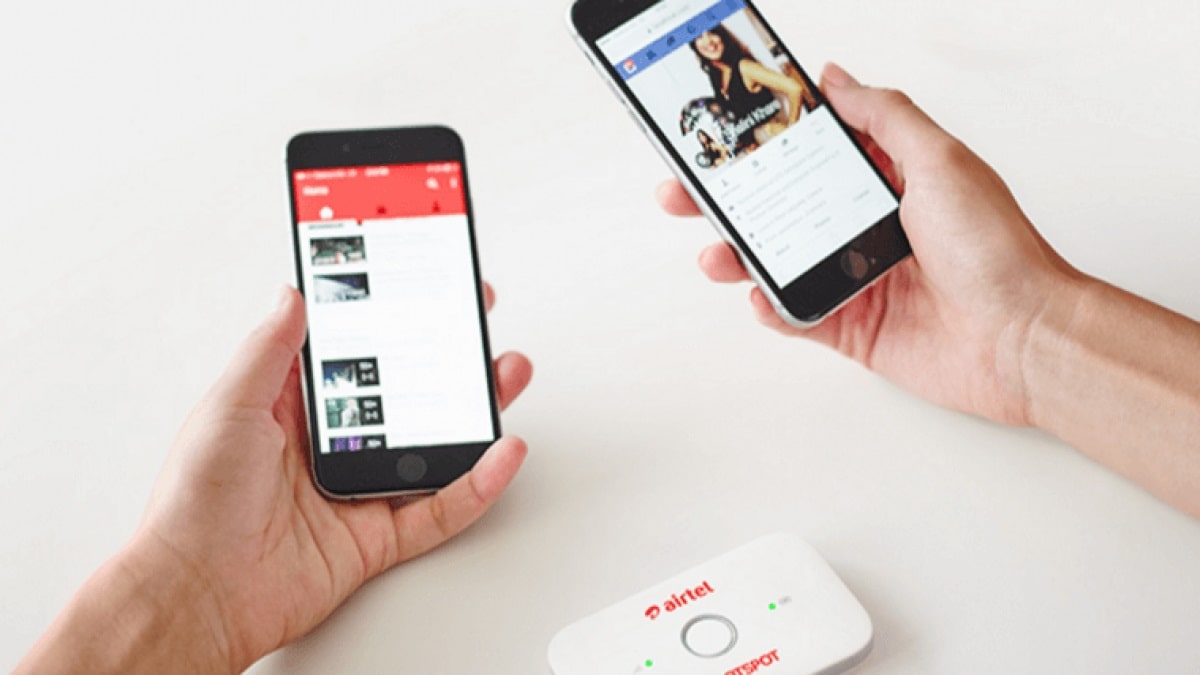MiFi is a brand name used to describe a wireless router that acts as a mobile WiFi hotspot. The term “MiFi” is often used generically to refer to any mobile wireless router.
In India, we have Jio’s MiFi called JioFi and Airtel’s myWiFi, also known as MiFi.

These compact devices provide internet access by connecting to a cellular network (such as 3G, 4G, or 5G) and sharing that connection with other devices through WiFi.
Key features and functions.
Portable internet access:
MiFi devices are highly portable, allowing users to carry internet connectivity with them wherever they go. This is particularly useful for travelers, remote workers, or anyone who needs internet access on the move. The only downside is non-covered-coverage areas.
Multiple device connections:
A single MiFi device can connect multiple devices simultaneously. This includes computers, smartphones, tablets, laptops, and other WiFi-enabled gadgets. Depending on the model, a MiFi can typically support between 5 to 15 devices at once. But keep in mind, as you connect more devices, the speeds of internet is affected-slowed the same way.
Battery operated:
Most MiFi units come with built-in rechargeable batteries, enabling them to function with or without needing a constant power supply. Battery life varies, but many models can last for several hours of continuous use. Or you can connect a big battery bank for more.
Secure connections:
MiFi devices offer secure internet connections. They support standard WiFi security like WPA2 and WPA3, ensuring that the data transmitted over the network is protected from unauthorized access. On top of that, accessing admin pages requires a password.
Easy to set up and get things started:
Setting up a MiFi device is usually straightforward. Users typically need to insert a SIM card from their cellular provider, power on the device, and follow a few simple steps to connect their devices to the WiFi network. This is the main reason why remote users love this.
Network compatibility:
MiFi devices are compatible with various cellular networks (depending on the device and provider), making them versatile tools for internet access in different regions and countries. Some MiFi device is carrier locked so check that in advance.
Uses and benefits.
- Traveling: MiFi is particularly beneficial for travelers who need reliable internet access without depending on public WiFi, which can be insecure and inconsistent.
- Remote work: For remote workers, a MiFi device provides a dependable internet connection, facilitating productivity from virtually any location.
- Backup internet: MiFi can serve as a backup internet source in case of primary broadband service outages, ensuring uninterrupted connectivity.
- No need for fixed broadband: For individuals or businesses that do not want to commit to a fixed broadband service, MiFi offers a flexible and often more economical alternative. They just need to limit their data use, as everything is capped.
Considerations when choosing a MiFi device.
- Carrier compatibility: Ensure that the MiFi device is compatible with the cellular network of your chosen provider. MiFi device could be locked or unlocked.
- Data plans: Consider the data plans available from your carrier. MiFi devices typically require a SIM card with a data plan, and the cost can vary based on data usage and speed. Typically, there are certain data plans for MiFi devices, refer to the plan.
- Battery life: Depending on your needs, you might prioritize a MiFi device with longer battery life for extended use. Check the device settings for more information.
- Speed and network support: Check the speed capabilities (e.g., 4G LTE, 5G) and ensure that the device supports the network types you will be using.
- Device limits: Consider how many devices you need to connect simultaneously and choose a MiFi model that can support that number.
In summary, MiFi devices provide a versatile and convenient way to access the internet wirelessly, leveraging cellular networks to create portable WiFi hotspots.
They are invaluable for staying connected on the go, whether for personal use, travel, remote work, or as a backup internet solution.
Leave a Reply